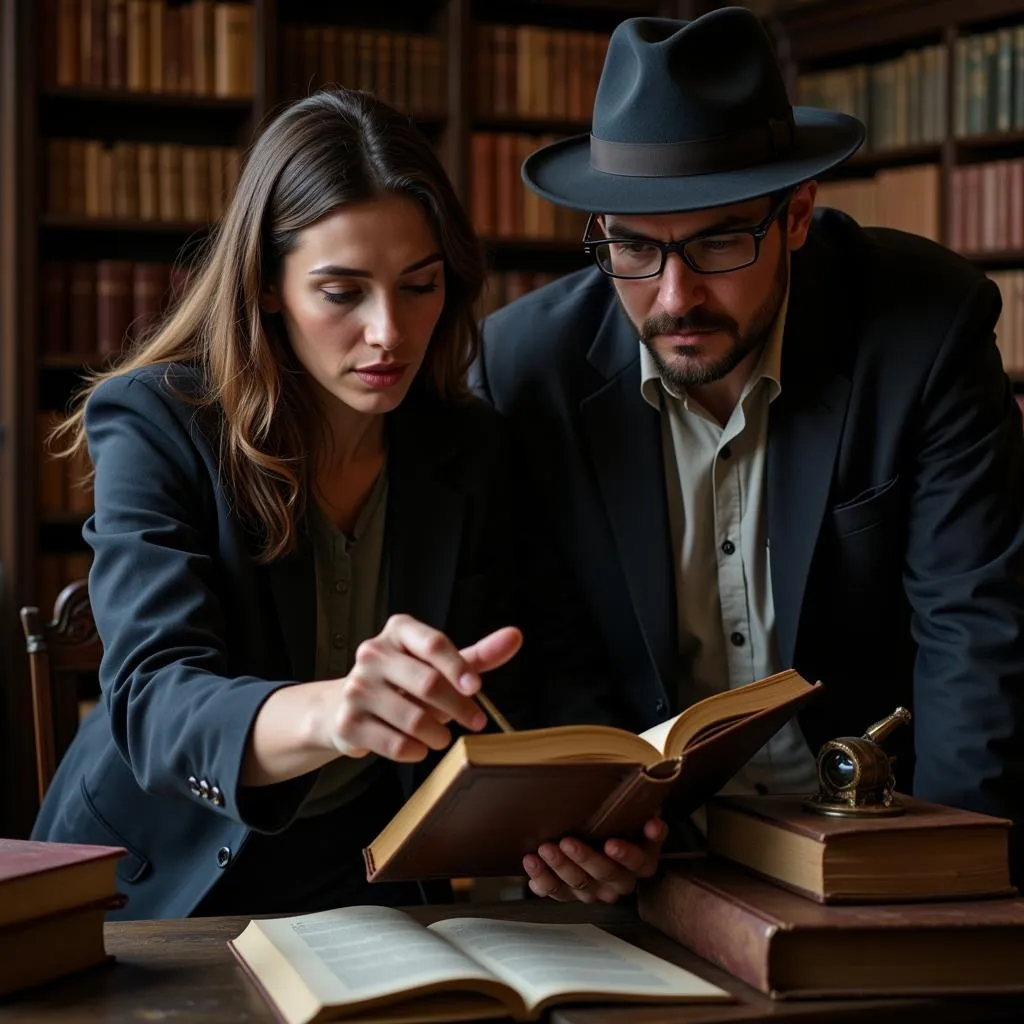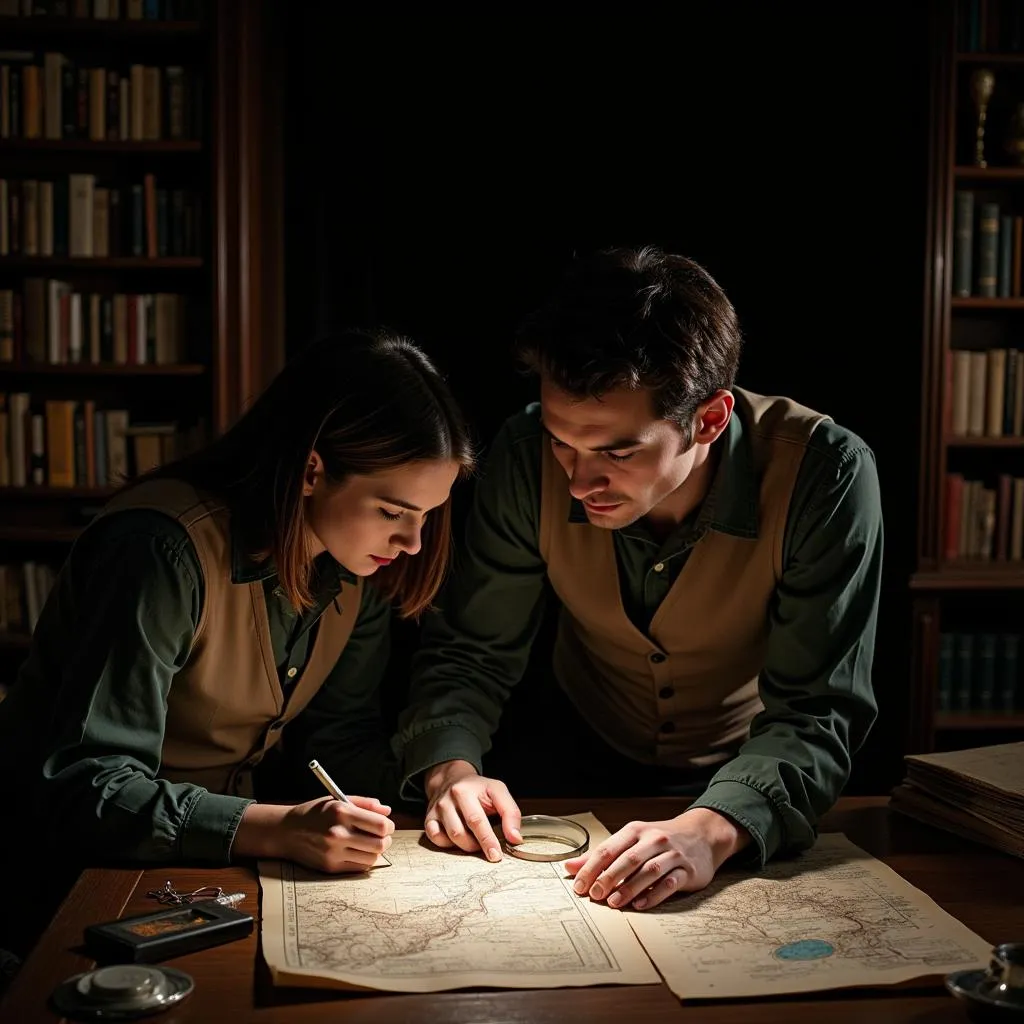Library Science Research might seem like a world away from the chills and thrills of paranormal investigation. However, for those of us who dedicate our lives to unraveling the mysteries of the unexplained, it’s a vital tool. Imagine searching for a whisper in a cacophony of noise; that’s what sifting through mountains of data for evidence of the paranormal can feel like. This is where the meticulous methodology of library science comes in, providing a structured framework for navigating the labyrinthine world of information.
The Research Librarian: A Paranormal Investigator’s Best Friend
Just as a detective relies on forensic evidence, a paranormal researcher depends on credible, verifiable information. This is where the expertise of a research librarian, particularly one well-versed in the quirks of paranormal literature, becomes indispensable. They can guide us to obscure texts, forgotten journals, and hidden collections that might hold the key to unlocking a case. For instance, imagine tracking down a first-edition account of a poltergeist case from the 1800s, complete with handwritten notes from the original investigator. Such a find could provide invaluable insights and context, enriching our understanding of the phenomenon.
 Research Librarian Assisting Paranormal Investigator
Research Librarian Assisting Paranormal Investigator
Tapping into the Power of Archives: From Folklore to Field Reports
Paranormal research extends far beyond modern ghost hunting equipment and EVP recordings. It delves deep into the annals of history, mythology, and folklore, drawing connections between ancient beliefs and contemporary events. Library science research provides the roadmap for this journey, enabling us to:
- Unearth primary source materials: Original documents, eyewitness accounts, and historical records are invaluable for corroborating paranormal claims or tracing the evolution of a specific phenomenon.
- Deconstruct legends and folklore: By analyzing the cultural context and historical evolution of paranormal narratives, we can gain insights into collective fears, beliefs, and the enduring power of storytelling.
- Compare and contrast case studies: Library science research allows for systematic organization and analysis of data, enabling us to identify patterns, trends, and anomalies in paranormal activity.
 Paranormal Researchers Analyzing Historical Documents
Paranormal Researchers Analyzing Historical Documents
The Digital Age: Online Databases and the Future of Paranormal Research
While the musty charm of a traditional library holds a certain allure, the digital revolution has undoubtedly transformed the landscape of paranormal research. Online databases, digital archives, and specialized research tools offer unprecedented access to information, connecting researchers across continents and facilitating collaboration like never before.
For instance, platforms like JSTOR and Project MUSE provide access to a vast collection of academic journals, some of which may contain articles on parapsychology, anomalous experiences, or the cultural significance of paranormal beliefs. This wealth of information, constantly updated and curated, empowers researchers with the most current and diverse perspectives.
Library Science Research: Illuminating the Path to Understanding
“The true key to understanding the paranormal lies not just in experiencing it, but in meticulously researching and contextualizing it within a broader framework of knowledge,” says Dr. Emily Carter, a leading researcher in anomalous phenomena and folklore. “Library science provides us with the tools and methodologies to sift through the noise and discern genuine patterns from mere coincidence.”
By embracing the principles of library science research, we equip ourselves with the skills necessary to navigate the vast and often contradictory world of paranormal information. This approach allows us to approach the unknown with a discerning eye, guided by a commitment to accuracy, thoroughness, and a healthy dose of skepticism.
FAQs
1. What are some key databases for paranormal research?
Some useful databases include JSTOR, Project MUSE, and the archives of organizations like the Society for Psychical Research.
2. How can I find historical newspaper accounts of paranormal events?
Library of Congress’s Chronicling America and commercial databases like Newspapers.com can be helpful resources.
3. Are there academic journals dedicated to paranormal research?
Yes, journals like the Journal of Parapsychology and the International Journal of Parapsychology explore these topics academically.
Need Assistance with Your Paranormal Research?
Our team of dedicated researchers at Paranormal Research is here to assist you. Contact us at:
Phone: 0904826292
Email: research@gmail.com
Address: No. 31, Alley 142/7, P. Phú Viên, Bồ Đề, Long Biên, Hà Nội, Việt Nam
We offer 24/7 support and are passionate about helping you unlock the mysteries of the unknown. Don’t hesitate to reach out!